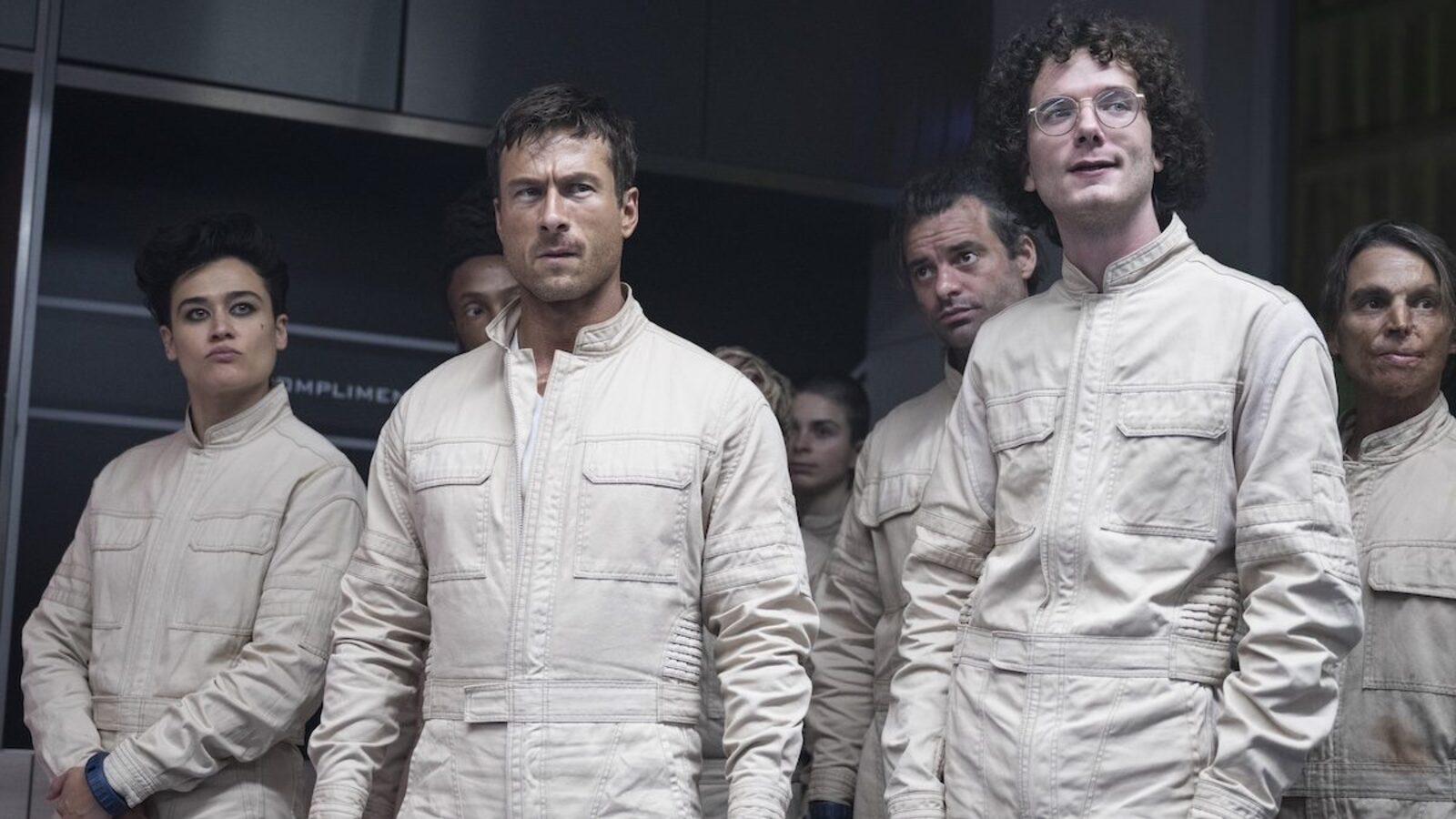Copyright Yardbarker

The Running Man won’t work for everyone. The film zips along in such an unrelenting way it can feel like whole scenes are missing. It also blurs the line between absurdist comedy, intense action film, and poignant satire so much some will find it a mess tonally. Neither of those were an issue for me. Once I locked in on the frenetic frequency of Edgar Wright’s adaptation, it all worked for me. And I do mean all of it, because this is a much bigger movie than its trailers would have you believe. On the surface level The Running Man works as a highly-entertaining, heart-pumping action yarn with a charismatic leading man. But that’s a small part of what makes it truly great. This is a powerful, unexpectedly moving film—anchored by a parent’s desire to keep his family safe at all costs—with a lot of smart, insightful things to say about life in America right now. Edgar Wright’s new adaptation of Stephen King’s Richard Bachman novel doesn’t totally abandon the cheesiness of the 1987 version starring Arnold Schwarzenegger. There are moments where this new version is nearly as over-the-top and silly. But, unlike the first adaptation, this film doesn’t reside there. It uses absurdity to highlight just how painfully feasible this entire scenario feels. Powerful executives now own everything. They control law enforcement, the government, the news, and the television networks. They’ve use this power to create and maintain a distinct two-tiered system of haves and have nots. To ensure the poor don’t rise up in rebellion, the execs use propaganda (which also involves the use of generative AI deepfakes) to prevent class warfare. They make sure the poor only hate each other and not the rich who oppress them. If you aren’t sure if I’m talking about the America of The Running Man or actual America in 2025 right now, that’s the point. But while it might sound like this film is too on-the-nose, it’s not. Its use of comedy—especially absurdist comedy via both scenarios and characters like Michael Cera’s underground revolutionary and Daniel Ezra’s secret YouTube-like conspiracy theorist—help keep the film from feeling ham-fisted or preachy. This movie is overflowing with ideas and commentary about this country’s power structure and socioeconomic imbalance. But a wild story about a deadly reality show is a Trojan Horse to deliver brutal political commentary. I expected The Running Man to at least work as a fun action film because of that wild story. Like the Trojans, I did not expect it to open up and totally kick my a--. (In this case emotionally.) Even while I was having fun watching Glen Powell’s Ben Richards—the angriest man alive—I was sick to my stomach. Really. As someone worried about the state of the world and his country, I found this to be a very hard movie to watch. The fact I loved watching it all the same seems impossible. It all works even if it sounds like it shouldn’t. The film’s unusual pacing, which involves omitting almost all scenes we’d classify as transitional, is a big reason why it’s successful. The nearly 2:15 run time flies by. This film moves with the energy of a speeding train, which elevates the tension of Ben’s situation. The trade off is that it can seem like characters change too quickly, or things happen just because they have to and not because it made sense. But the absurdity of the world these people inhabit explains why everything moves so fast. Wright and co-writer Michael Bacall create a setting that justify their characters’ actions which might otherwise would feel inauthentic. That’s best exemplified by one important character introduced late in the film. The shock of finding out what the world is actually like, versus the curated lies execs have always sold her, is enough to actually shock her into being very different very quickly. That quick change makes sense. It’s also meaningful. It’s a hopeful moment in a bleak world. While a lot of the reasons I loved the The Running Man surprised me, some aspects I loved did not. It’s tense, wild, funny, and looks great. Visually and comedically, it’s everything you’d expect from an Edgar Wright movie. It also has a sense of place and time. It’s a world with an internal logic (even for the inherently illogical) that makes sense unto itself. Its incredible cast is everything I expected, too. (I can’t talk about one of my favorite performances. You’ll know why when you see it.) Josh Brolin is unsurprisingly fantastic as the show’s producer, the smooth-talking, sociopathic Dan Killian. He’s obsessed with ratings and nothing more. Brolin makes his Killian feel way too real, even though he’s a complete monster. The man who helps deliver Dan his ratings is host Bobby T., played to perfection by a stylish, funny Colman Domingo. Both are great foils for Powell, who gives a true leading man performance. (Good work, Stephen King.) He’s basically onscreen 95% of the time and he holds your attention every time. His Ben Richards is funny, angry, and defiant, but Powell shapes his performance around the underlying reasons why he’s full of rage. He’s a good man in a bad world he can’t change. He lives in a world that punishes him for trying to do what’s right. He’s also a desperate dad who just wants to provide for his wife and child yet has no other way to do so. That sad reality gives the movie, which in the macro is a deep politically film with big ideas about the world, the personal touch it needs to stay grounded. The Running Man never forgets why this is happening to Ben even as the story grows beyond him. Early on, there’s a scene that really captures the tragic depth of the story. When Ben tells his wife he’s joined a show that is a guaranteed death sentence, she quietly accepts it. It’s a moment so understated it broke my heart. These are people who love each other but also know there is no way out of their horrible situation. One of them choosing death for money is something that makes sense even though it shouldn’t. Especially because they shouldn’t have to choose. It’s a moment that is not absurd, over-the-top, or cutting in anyway. It’s just quietly sad. But that’s why the movie’s use of absurdity is both meaningful and powerful. This is all so stupid and unfair! Why is everyone living like this? Why are society’s downtrodden accepting the exploitation of their own kind, the exploitation of their own pain and suffering, as entertainment? What reason do they have to accept a modern day Roman Colosseum in lieu of food and medicine? It’s all circus with no bread. It’s all so stupid it can’t possibly be something anyone would actually do, right? The real world would never accept this kind of scenario! This can only be satire, right? ….Alas. And that’s why The Running Man is so smart. It’s form is not just a device to entertain. It’s form, which employs silliness, is directly tied to its great themes. I’m lucky that everything this film tries to do, and the unique way it does it, all clicked for me immediately. It wont click for everyone. At least not on the first viewing. But with an entertaining film this rich in ideas, I think it will ultimately work for a lot of doubters on a second viewing. Once you understand what The Running Man is actually saying, and that the unusual way it speaks and why, you’ll appreciate why this excellent film works. The Running Man ⭐ (4.5 of 5) Mikey Walsh is a staff writer at Nerdist who would lose immediately on The Running Man cause he’s always tired. You can follow him on Bluesky at @burgermike. And also anywhere someone is ranking the Targaryen kings.



